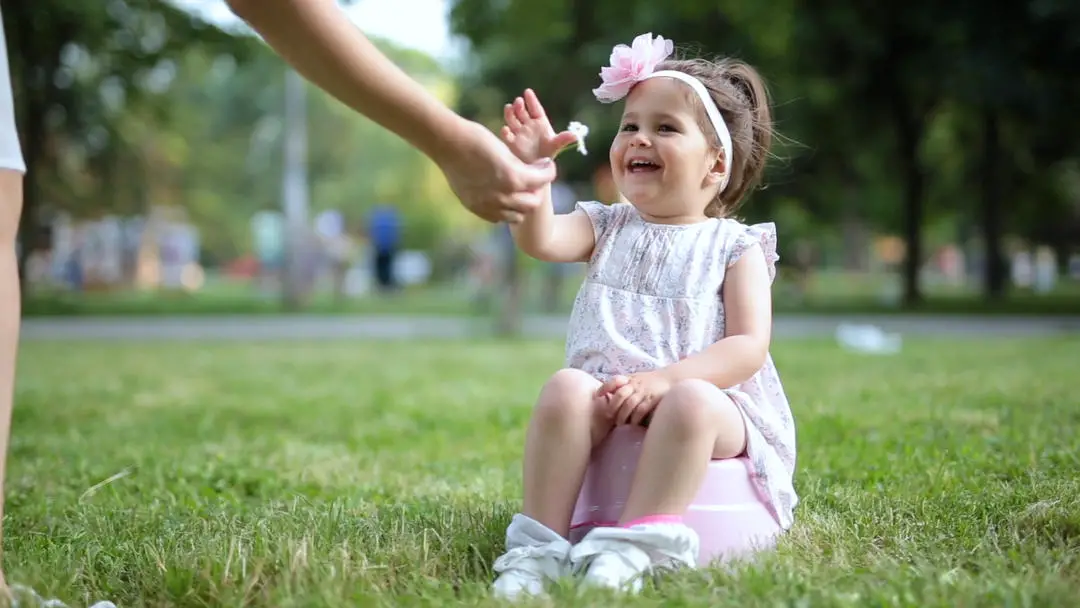Potty training is all about timing. Deciding when to potty train your toddler can mean the difference between a long, difficult learning process and one with fewer bumps in the road.
It’s important to consider if your child is ready to begin the process and if the timing is right for your family. Scroll down for tips on deciding if the timing is right to begin potty training your child.
Signs the timing is Right for your Child to Begin Potty Training:
No other major life changes occurring in your little one’s life: Learning to use the toilet is a big enough change in a child’s life.
Try not to begin toilet training when your toddler is also transitioning to a bed, giving up a bottle or pacifier, moving, or becoming a big brother or sister soon.
Shows an interest in learning: Does your toddler want to sit on the toilet or potty? Does s/he try to watch others go to the bathroom? These are signs of interest to look for.
Read Also: Potty Chair vs Potty Seat.
Has control of bowel movements and bladder muscles: Does your toddler often have bowel movements around the same time each day? Is s/he able to keep a diaper dry during nap time?
These may be signs of muscle control needed for potty training.
Notices when s/he urinates or has a bowel movement: This is a key sign to look for when deciding when to potty train.
Dislikes being in a dirty diaper: Does your toddler come to you after soiling a diaper? Do you find your toddler tugging at (or even taking off) a wet diaper?
Is in a pleasant and cooperative phase: Toilet training can quickly become a power struggle if your toddler is in a defiant phase. Don’t begin until your little one is in a more cooperative phase.
Signs that the Timing is Right for you and your Family:
No Vacations Planned in the Near Future: Don’t begin potty training if there is a vacation coming up soon. You don’t want to stress yourself out hoping your little one will be ready in time, and in turn stress out your child.
You also don’t want to put your toddler back in diapers for a trip which will likely lead to regression when the vacation is over!
No New Baby: Potty training often requires a lot of consistency, time, and patience. It’s hard to give a toddler the attention needed to learn to use the toilet when caring for an equally needy newborn.
It’s usually best to wait a few months and let everyone adjust to their new roles before diving into toilet training.
Open Schedules: Wait to begin potty training when your family’s schedule isn’t overly hectic. Extra time is needed, especially in the beginning phases, to help toddlers understand and follow through with the process.
Family Members Can Stay Calm and Positive: Accidents and regression can be frustrating, but they are also a common part of the process.
Don’t begin the process at a stressful time when family members won’t be able to handle these setbacks calmly and positively!
By following these tips you’ll know exactly when to potty train your toddler!

